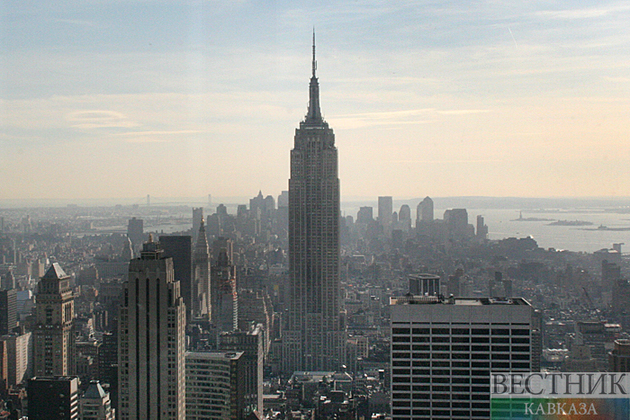The office of the US Trade Representative (USTR) said it has re-aligned the trade relationship with China, with US president Joe Biden in the State of the Union Address stressing competition with China. Analysts summed up the China part of Biden's report as far-fetched and clichéd.
Global Times notes that the USTR released the 2022 Trade Policy Agenda and 2021 Annual Report on Tuesday, saying that any competition between China and the US "must be fair". It said that the unduly concentrated production of certain goods in China had undermined America's supply chain resilience and harmed its consumers.
Chinese analysts said that in fact, China maintained the operations of global supply chains amid the COVID-19 pandemic, which helped production in the US. The annual report was described by many experts as full of clichés, and baseless accusations that indicated the US is exhausting tools to hurt China's economy.
The US faces a dilemma with its trade policy toward China, Gao Lingyun, an expert at the Chinese Academy of Social Sciences in Beijing. "Regarding some of the new tools mentioned in the report, it can be seen that its tariffs war and other sanctions did not work or even resulted in domestic resistance in the US. Furthermore, for the Biden administration, the upcoming midterm elections and other domestic issues such as surging inflation will be its focus, while China-US relations could be sidelined.
In January, inflation in the US rose 7.5 percent, the steepest rise since 1982, the US Bureau of Labor Statistics said on February 10. Biden said in his State of the Union address that his plan "to fight inflation will lower your costs and lower the deficit."
"We will 'buy American' to make sure everything from the deck of an aircraft carrier to the steel on highway guardrails are made in America. But to compete for the best jobs of the future, we need to level the playing field with China and other competitors," said Biden.
Ramping up US manufacturing to fight inflation is itself a false proposition, Hu Qimu, chief research fellow at the Sinosteel Economic Research Institute. "It is precisely because the cost of manufacturing in China is much lower than the US that it has contributed greatly to suppression of inflation in the US. Supplying goods for the domestic market at current labor costs in the US will only raise inflation there. Biden's proposal is a very bad one, and it ignores the international division of labor", said Hu.
Analysts said that apart from COVID-19, which has pushed up inflation, tariffs added on Chinese goods also contribute to the US' surging inflation. The simplest way to reduce inflation in the US would be to remove the punitive tariffs imposed on Chinese goods, but that would run counter to US trade policy toward China. In other words, the US has lifted a rock only to drop on its own feet.
In the annual trade report, the USTR said it continued to address a broad range of manufactured goods market access barriers and non-tariff barriers, including barriers resulting from a range of China's industrial policies, such as "Made in China 2025," which is designed to create or accelerate China's ability to become a manufacturing leader in the high-technology, high value-added industries.
The US is fearing that this technological and manufacturing development will increase China's competitiveness around the globe, Wang Peng, an assistant professor at the Gaoling School of Artificial Intelligence at the Renmin University of China. Wang said that the report is further proof of the US' double-standard practice: "The US remains a leader in high-tech. How can China's and other countries' efforts to promote tech innovations and manufacturing be deemed a violation of trade fairness?"
Gao cautioned that under the current global situation, there is a chance for the US to "push a step forward" to get China-US relations back to normalcy: "China's position on bilateral relations has always been clear, and it depends on what the US will do next."






